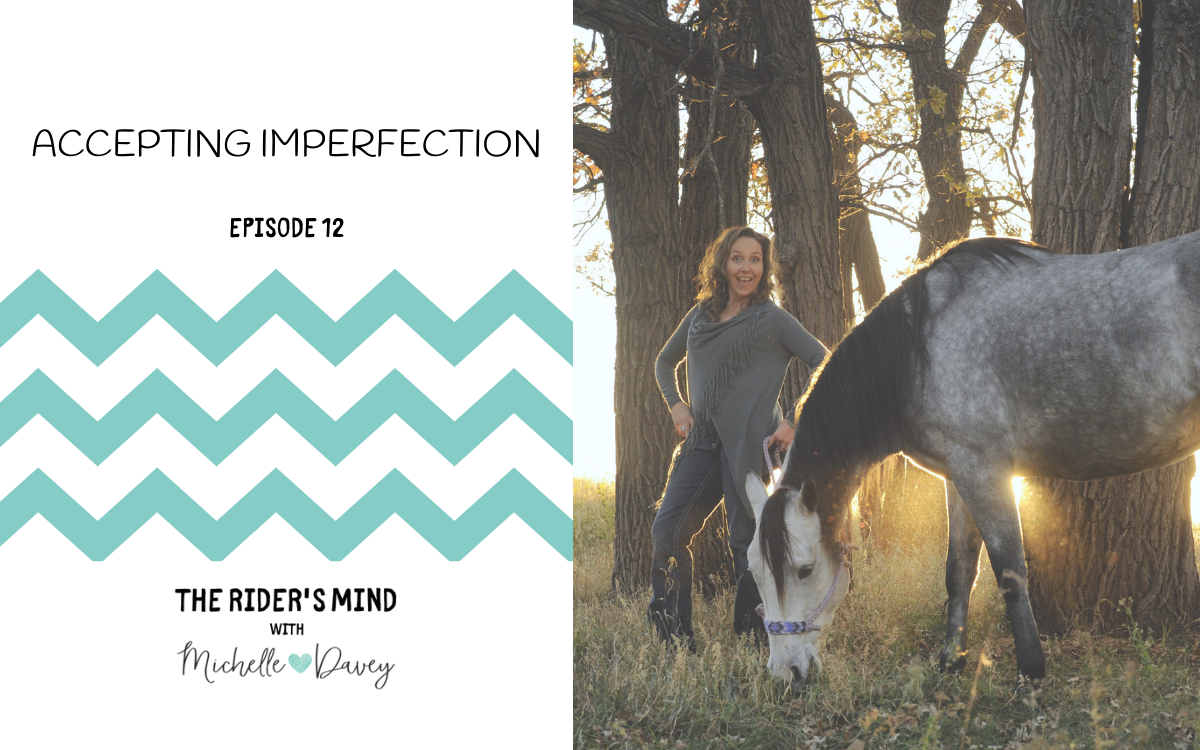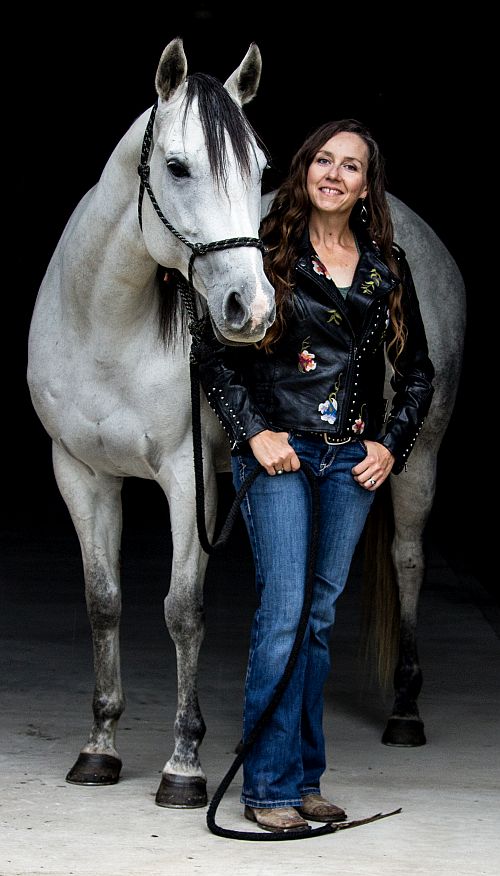
Episode 12: Accepting Imperfection
You are not perfect. I’m not perfect. Your horse is not perfect. Yet, for some reason, many of us have expectations of perfection. In this episode, I’ll explain how perfectionism can affect your riding and I’ll share my thoughts on accepting imperfection.
I’m a recovering perfectionist. (I say “recovering” because I’m still working on this – I recorded this episode twice because I wasn’t happy with the first version.) I am aware of my perfectionist tendencies and I’m working on overcoming them.
Those of us who have perfectionist tendencies are often very critical of ourselves. Often, we also have high expectations of others. Sometimes, we have a double-standard; we might accept that others are imperfect, but we still expect ourselves to be perfect.
What are the signs of perfectionism?
Perfection is an unrealistic expectation, but we still try to be perfect. If you exhibit a number of the following signs, you might be a perfectionist…
- You have high expectations of yourself (and possibly, of others)
- You have a very critical eye of yourself (and possibly, of others)
- You fear failure, abandonment and/or rejection
- You procrastinate
- You have a need to please others
- You’re very goal-driven
- You’re defensive
- You may feel depressed when your goals are unmet
- You may have low self-esteem
- You feel like you’re letting others down
- You’re very goal-driven (yes, I repeated that one and I’m accepting that imperfection)
- You have an all-or-nothing mindset
So why do we try to be perfect?
Some people are born with a tendency to strive for perfection. Perfectionist tendencies can also be nurtured through our life experiences. Society, our families, parents and schools groom us to be perfect. We are taught to behave in certain ways and strive for certain goals. If the people around us are perfectionists, we are more likely to adopt their perfectionist tendencies (sometimes without even realizing it).
Advice from a Recovering Perfectionist
I’m a recovering perfectionist. I’m aware of my tendencies and I try to accept imperfection. For example, I put out my podcast episode even if it’s not quite perfect. Done is better than perfect, so I accept that, in order to share my work with you, I might have to release an episode even though it isn’t edited and re-recorded to perfection.
Perfectionism stems from a fear of being imperfect. I’m working on accepting my imperfections and the imperfections of my horse. Perfect runs are rare. Perfect scores are rare. So why set ourselves up for failure by expecting perfection in the arena? We need to be able to make mistakes in competition and still move on. Dwelling on our mistakes doesn’t help our performance.
I still set goals and try to ride right for my horse, but I’m not focusing on being perfect. Focusing on perfection leads to disappointment because perfection is impossible. Aim to measure effort or improvement, rather than aiming for perfection.
Striving for perfection puts a lot of pressure on us. It can often lead us to self-sabotage. It’s easy to make mistakes when we’ve put all that pressure on ourselves. Your horses also feel that pressure, which makes it harder for them to succeed.
I challenge you to step away from your fear of being imperfect. Accept that you are not perfect. Accept that your horse is not perfect. Accept that you will both make mistakes sometimes. Remind yourself of these things often. Learn to accept mistakes as part of the learning process. Practise moving on from mistakes rather than dwelling on them. Release yourself from your expectations of perfection.
You are designed to be imperfect.
Join the conversation! Share your ideas in The Riders Mind Community on Facebook.

